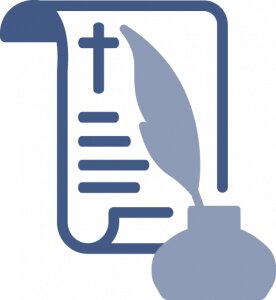Best Collaborative Law Lawyers in Stuttgart
Share your needs with us, get contacted by law firms.
Free. Takes 2 min.
Free Guide to Hiring a Family Lawyer
List of the best lawyers in Stuttgart, Germany
About Collaborative Law in Stuttgart, Germany:
Collaborative Law in Stuttgart, Germany is a method of resolving legal disputes outside of traditional court proceedings. It involves both parties and their lawyers working together to find a mutually beneficial solution. This approach emphasizes cooperation and communication to reach an agreement that meets the needs of all parties involved.
Why You May Need a Lawyer:
You may need a lawyer in Collaborative Law if you are facing a legal dispute that requires negotiation and agreement between parties. A lawyer can help guide you through the process, ensure your rights are protected, and assist in reaching a fair and sustainable resolution.
Local Laws Overview:
In Stuttgart, Germany, Collaborative Law is governed by specific regulations that prioritize the voluntary participation of all parties involved. The process is confidential and focuses on finding creative solutions that meet the interests of both parties. It is important to consult with a lawyer who is knowledgeable about local laws and practices in Collaborative Law.
Frequently Asked Questions:
1. What is the role of a lawyer in Collaborative Law?
A lawyer in Collaborative Law serves as a legal advisor and advocate for their client. They help navigate the negotiation process, offer legal advice, and work towards a mutually agreeable resolution.
2. How does Collaborative Law differ from traditional litigation?
Collaborative Law focuses on cooperation and open communication to reach a resolution, while traditional litigation involves court proceedings and decisions made by a judge. Collaborative Law tends to be more cost-effective and less adversarial.
3. Can Collaborative Law be used for any type of legal dispute?
Collaborative Law can be used for a variety of legal disputes, including family law matters, business disputes, and probate issues. It is particularly effective in situations where ongoing relationships are important.
4. What are the benefits of choosing Collaborative Law?
Some benefits of Collaborative Law include faster resolution times, lower costs, greater control over the outcome, and the ability to maintain positive relationships with the other party.
5. Are the results of Collaborative Law legally binding?
Once an agreement is reached in Collaborative Law, it can be made legally binding through the appropriate legal channels. It is essential to have a lawyer oversee the finalization of any agreements reached.
6. How long does Collaborative Law typically take?
The timeline for Collaborative Law varies depending on the complexity of the dispute and the willingness of both parties to cooperate. On average, the process can take several months to reach a resolution.
7. How do I find a lawyer experienced in Collaborative Law in Stuttgart?
You can search for lawyers specializing in Collaborative Law in Stuttgart through legal directories, referrals from other professionals, or by contacting local law associations for recommendations.
8. Can I switch from Collaborative Law to traditional litigation if needed?
If Collaborative Law is not successful in reaching a resolution, you have the option to pursue traditional litigation. Your lawyer can advise you on the best course of action based on your specific situation.
9. What happens if one party does not comply with the Collaborative Law agreement?
If one party fails to comply with the Collaborative Law agreement, legal remedies may be pursued to enforce the terms of the agreement. Your lawyer can help you take the necessary steps to uphold the agreement.
10. Is Collaborative Law suitable for resolving complex legal disputes?
Collaborative Law is often effective for resolving complex legal disputes that require creative solutions and ongoing cooperation between parties. It is important to consult with a lawyer to determine if Collaborative Law is the right approach for your situation.
Additional Resources:
For additional resources on Collaborative Law in Stuttgart, Germany, you may consider contacting the Stuttgart Bar Association or the German Collaborative Practice Association. These organizations can provide valuable information and referrals to experienced lawyers in Collaborative Law.
Next Steps:
If you are considering Collaborative Law for your legal dispute in Stuttgart, Germany, the next step is to consult with a qualified lawyer experienced in this area. They can assess your situation, explain the process in detail, and help you decide if Collaborative Law is the right approach for your case.
Lawzana helps you find the best lawyers and law firms in Stuttgart through a curated and pre-screened list of qualified legal professionals. Our platform offers rankings and detailed profiles of attorneys and law firms, allowing you to compare based on practice areas, including Collaborative Law, experience, and client feedback.
Each profile includes a description of the firm's areas of practice, client reviews, team members and partners, year of establishment, spoken languages, office locations, contact information, social media presence, and any published articles or resources. Most firms on our platform speak English and are experienced in both local and international legal matters.
Get a quote from top-rated law firms in Stuttgart, Germany — quickly, securely, and without unnecessary hassle.
Disclaimer:
The information provided on this page is for general informational purposes only and does not constitute legal advice. While we strive to ensure the accuracy and relevance of the content, legal information may change over time, and interpretations of the law can vary. You should always consult with a qualified legal professional for advice specific to your situation.
We disclaim all liability for actions taken or not taken based on the content of this page. If you believe any information is incorrect or outdated, please contact us, and we will review and update it where appropriate.









